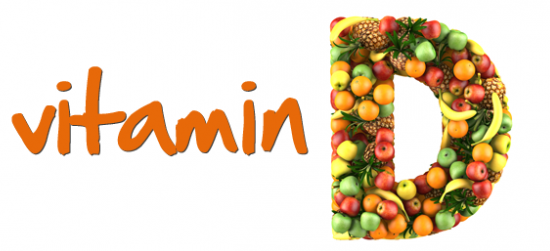 Most of us know that vitamin D is good for bones. In fact, that may be all some of us know about it. There are a lot of misconceptions floating around these days about this important nutrient. Vitamins are essential to our bodies because they help keep us healthy. The problem with vitamins is that we have to continue getting them from one source or another, simply because our bodies don’t make enough of them to sustain our good health. And vitamin D is one of the main nutrients required by our bodies. Many doctors can tell you that vitamin D is an important nutrient that helps build and maintain strong bones and skin. Here is further information about the facts and myths about vitamin D that will help you on your journey to a healthier life.
Most of us know that vitamin D is good for bones. In fact, that may be all some of us know about it. There are a lot of misconceptions floating around these days about this important nutrient. Vitamins are essential to our bodies because they help keep us healthy. The problem with vitamins is that we have to continue getting them from one source or another, simply because our bodies don’t make enough of them to sustain our good health. And vitamin D is one of the main nutrients required by our bodies. Many doctors can tell you that vitamin D is an important nutrient that helps build and maintain strong bones and skin. Here is further information about the facts and myths about vitamin D that will help you on your journey to a healthier life.
First, a short lesson on vitamins and vitamin D
Vitamin D is a ‘fat soluble’ vitamin. The term ‘soluble’ means a vitamin is able to be dissolved. Vitamins are either ‘water soluble’ or ‘fat soluble.’ Water soluble vitamins, such as C and Bs, are easily dissolved in the body. Your kidneys are able to remove excess amounts of water soluble vitamins, and they’re eliminated from the body in urine. (But don’t make the mistake of thinking water soluble vitamins can be taken to excess simply because they’re easily excreted. You can still develop health problems is these are received into the body in excessive amounts.) Fat soluble vitamins such as A, E, K, and D are absorbed in the lymph and carried through the body in blood. These can be stored in fatty tissue and in liver for when they’re needed. Because fat soluble vitamins are not easily dissolved, it’s possible to build up too much of these to toxicity. Most of us, however, don’t get enough vitamin D in the first place.
Facts about vitamin D
Most people don’t get enough of vitamin D
Vitamin D is essential to our bodies, particularly for the health of our bones. Sadly, most of us don’t get enough vitamin D, even if we follow our government’s guidelines for recommended daily allowances. Getting the proper amount of vitamin D is an optimal way of fighting bone diseases as we age, such as arthritis. Be sure to get out into the sun a little on most days, even if the sky is overcast as the sun’s rays can still get through. Additionally, be sure to get enough vitamin D in your foods as well as an effective supplement.
Vitamin D is very good for you
Vitamin D is not only very good for you; it’s essential to your health! In fact, many researchers report that vitamin D isn’t just good for your bones, but it’s vital for your brain, heart, and immune system. The health benefits of getting enough vitamin D are practically endless, and that’s why it’s very important to obtain it from as many sources as possible, including the sun, supplements, and the foods you eat.
Myths about vitamin D
Sunny-climate dwellers get the most vitamin D
Not so say recent studies that show that populations of Eskimos have high levels of vitamin D, likely from their diets. In fact, one recent study showed that those who live in sunny climates and surf often sometimes have vitamin D deficiencies. This is thought to be the case due to poor diet, making the claim of sunny climates and high vitamin D deficiencies a big myth.
The sun is the only place to get it
Though the sun’s rays are, indeed, an excellent source of vitamin D, thankfully, it’s not the only place to get this vital nutrient. A diet rich in fatty fishes such as salmon, trout, and mackerel is a good place to start. Dairy products such as low-fat yogurt and milk, pork, and eggs are also good sources of vitamin D.
You won’t find a doctor or nutritionist anywhere who says vitamin D is bad for you or that you don’t need it. It’s a simple fact that all human beings need vitamin D. The question is—how do you get enough of it? Yes, it is best to obtain most of the vitamins and minerals our bodies need from our food sources. The problem with this, particularly in the United States, is that much of our soils have been depleted of their vital nutrients, due in large part to their overuse. Because this is the case, it’s important for many of us to find vitamin D sources elsewhere. Yes, you can also get vitamin D from the sun, but this too is not the only source of this vital nutrients. Consult with a doctor near you for more information on the best sources of vitamin D, or to find out if you are vitamin D deficient.


